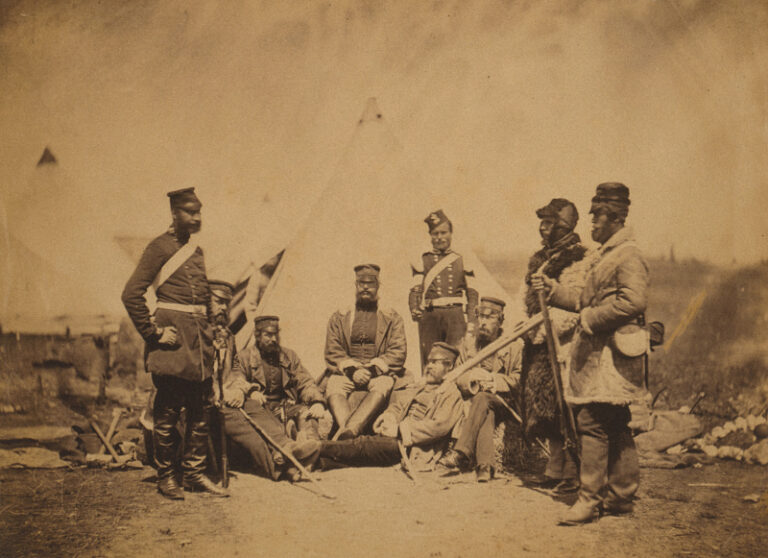The Day the Soldiers Came
The Day the Soldiers Came
The reason for the Talargoch lead miners’ strike of July-November 1856 was unusual and the names of the five men who caused of it have come down to us. They were Peter Jones, Pen-y-Cefn; John Edwards, Newmarket; a man they just called Harrison, who was an in-law of the steward; Dafydd Jones, the big boss, as he was called, and his two sons, John and Robert. In common with all the miners, they didn’t work for the mining company—they worked for themselves and sold their ore to the company once it was nicely washed and weighed on the surface. The miners were in effect working as private enterprise contractors and the risk to the company was minimal—the miners even used their own tools and explosives!
At the beginning of July 1856, the mine agent, Captain Ishmael Jones, allocated Peter Jones’s gang to a part of the mine known to have a poor prospects. Jones was unhappy and asked if he could have an allowance in addition to what they might be paid for the ore because it would be otherwise unprofitable. Ishmael Jones said that he could stretch to £7 per ton but there would be no additional allowance. The gods smiled that day and the men found that they had been allocated a very productive seam which the company had not anticipated. Ishmael Jones kept his promise and each man received £120—that is well over £11,000 in present day value—each! When the company heard about what had happened, it changed the rules immediately so that only the first two tons would earn £7 and anything over that would be decided by the agent. The miners were not happy, especially Peter Jones’s men because they still had lots of ore left in their seam.
The miners protested by surrounding Dyserth Hall where Ishmael Jones lived. Some carried guns and some—probably on the spur of the moment—dressed in women’s clothing in the manner of the Rebeccas. [The Rebecca Riots had taken place in Wales between 1839 and 1843 when the agricultural economy had collapsed and taxes were felt to be unfair. Toll gates, which farmers had to pay to use, had been smashed by groups of men following leaders dressed as Rebecca, a reference to Genesis 24:60; And they blessed Rebekah and said unto her, Thou art our sister, be thou the mother of thousands of millions, and let thy seed possess the gate of those which hate them.]
The men did no damage at Dyserth Hall but went to the pumping engine across the road, where they threatened the engine-drivers who agreed to stop the pumps, causing the mine to flood. Ishmael Jones resigned as the agent and in the middle of October, the company brought in outsiders to restart the pumps. At first all was quiet and then on October 21st, a gang of about 30 men went to Talargoch at about 10.30 at night and fired shots into the engine-house which was behind where the car sales businesses are now. They missed the engine driver but some small-shot entered the feet and legs of Edward Thomas, the watchman. The Government offered a reward of £100—worth about £9,500 now—but the village remained silent.
The whole affair could have been dealt with by police but Flintshire did not have a regular constabulary and so the local magistrates swore in some special constables to take possession of the mine office and works. The next day, they decided that it was too much for special constables and Colonel Rowley Conwy was sent to Chester to fetch the military.
By good fortune, there were soldiers in the barracks—the 89th Regiment, Princess Victoria’s Royal Irish Fusiliers, a crack foot regiment which had fought in practically every important British Empire engagement since being raised at Dublin in 1793. Known as Blayney’s Bloodhounds, their battle honours had been won fighting Napoleon in Egypt, the American War of 1812 and the Anglo-Burmese Wars. Their motto was, “Clear the Way!”

They were returning from the Crimea after their victory over the Russians at Sevastopol and resting at Chester barracks overnight before continuing their journey by train to Holyhead. An officer and 36 men were ordered to catch the 7.10 p.m. train to Prestatyn and then march to Talargoch to sort out the natives.
When the train arrived at 8.20, the soldiers mustered on the platform and then Captain Selby, watched by hundreds of spectators, asked where the riot was. The response was, “What riot?” He tried to find out who was in charge and refused to take any further action until the magistrates were found. Eventually, two figures on horseback could be seen trotting towards them—Shipley Conwy and the Vicar of St. Asaph! Once the situation was explained, Blayney’s Bloodhounds set off to Meliden in heavy marching order with fixed bayonets, and twenty rounds of ball cartridges each. It would have been an impressive sight, especially as British soldiers still wore red tunics and it was quite possibly the first time the people of Prestatyn and Meliden had ever seen the heroes who policed the Empire—it was just a shame that in typical Victorian army fashion, the rest of their kit had continued the journey to Ireland—nobody had informed the quartermaster!
Another story survives by word of mouth. I was always dubious about it until I discovered another source in some reminisces that Peter Hughes of Castle House made around 1926. It was a cold November night and the people of Meliden were concerned that the soldiers had no tents or palliasses and so they offered them food and shelter! The captain, who had already found a comfortable billet in the Miners’ Arms, raised no objections. It is said that once the soldiers started talking to the villagers, they struck up such a good relationship that when supplies arrived, they shared their food with the needy families of the village.
The strike had lasted for seventeen weeks and in the second week of November, the miners returned to work, having accepted the company’s new regulations. The losses to the company and the damage to the works was so considerable that production took a long time to recover and a new mining company had to be formed. About forty men lost their jobs and had to leave the district, shopkeepers who had given credit were never repaid, wives had been seen begging, farmers had not been able to sell their produce and school attendance had declined. The events may very well have precipitated the death of the agent, Ishmael Jones who died November 11, 1856 aged 58. [Buried in Newmarket.]
One outcome was the immediate formation of a Flintshire Police Constabulary.
